Everybody wants to rule the world
When dystopian books work and when they don't
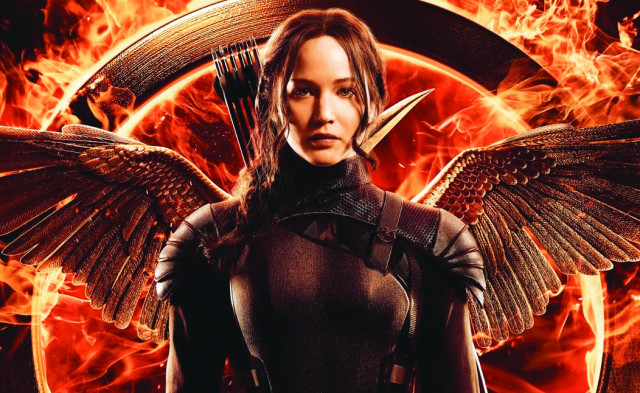
If you were a teenager in the early-2010s, you might fondly recall the wave of dystopian literature that took the world by a storm and prompted the creation of many iconic film adaptations. From the Capitol's motley in The Hunger Games to the labyrinthine world of The Maze Runner, we remember this era as one with novels rooted in the same central theme yet each story was executed in a vast variety of ways.
This was the era of teenagers overthrowing oppressive government systems, and we believed every version of it. It was easy for audiences of the same age group to sympathise with these like-minded characters, even easier to project oneself onto them, which is primarily why the dystopian genre was a staggering success. But was that all there was to it?
The goldmine of dystopia
Oftentimes in fiction, political intrigue is a mere subplot that may be added to influence narrative tension and intensify stakes. However, in dystopia, politics is the beating heart of the plot. Politics is why we are compelled to view a dystopian universe in the first place. If the politics fails, the rest of the system crumbles - and while that denouement is necessary for the protagonist's arc, the author need not make it the reader's journey.
That being said, you can't bring up the genre without mentioning The Hunger Games at some point, if not first of all. For the unversed, this novel follows the journey of Katniss Everdeen, who volunteers to take part in a lethal survival show in place of her younger sister Primrose.
In the twelfth district of a post-catastrophic, war-torn North America, Katniss is the sole breadwinner of her family in a world where insurmountable wealth disparity between the Capitol and its districts has become the norm. Why this series works is not just because of the real-world implications, but also because it explores the regressive regime of the Capitol past the opulent vanity.
The dictator President Coriolanus Snow is named after the Roman general and the titular protagonist of Shakespeare's Coriolanus. The characters in both fictional works are personifications of the corruption of absolute power that is aided by the hoarding of wealth and resources, and denying basic necessities to the impoverished.
This inspiration has enabled author Suzanne Collins to not only explore the constitutional subtleties of the narrative, but also depict how they were first put to practice in the incredibly-pieced prequel following the rise of the antagonist. Furthermore, Collins doesn't present authority as an isolated act driven by one individual; rather, she stresses that it is a vicious cycle, a touch of which can ruin anyone, through her portrayal of rising antagonist President Alma Coin.
The relatability factor works wonders when it comes to the depiction of a jarring, futuristic world - one we might not be around to witness at its full scale yet we can see the signs early on. A harrowing representation of this is in Margaret Atwood's The Handmaid's Tale, which is a feminist dystopian narrative that depicts a world where the state takes full control of women's bodies, reducing their individual identities and brutally exploiting them.
Given the heated discourse around abortion, the rates of rape and honour killings, and policies denying women the rights to their own bodies, this premise unfortunately does not steer far from reality. The elements of patriarchal servitude in the novel are also inspired by historical events, cementing the theocratic intent of the in-world totalitarian regime.
Another excellent depiction of a similar dystopian government is in Aldous Huxley's Brave New World, in which every aspect of a citizen's life is governed. Transparency takes an oppressive form when it comes to this classic novel, in which human beings are bioengineered and modified to fit seamlessly into society.
The fascist World State discourages human emotions, obliterating them so that conflict never arises and citizens are fully subdued by the government. In contrast, those who are alienated from high society are viewed as primitive for being able to express human emotions. The 1932 novel comments on the dooming reliance on technology, which in the context of our world is becoming unavoidable with every passing day hence making this dystopian take an intellectually inquisitive one.
When the gold runs out
While the general premise of the genre offers much to work with, sometimes the products fall short of expectations. Dystopian literature fails to please when it compromises on fleshing out its central authority and instead relies on vague portrayals that serve no greater purpose than distinguishing the good from the bad.
In Veronica Roth's Divergent, society is divided on the basis of factions and defining personality traits; anyone straying from this norm either ends up factionless (poor and outcasted) or is termed "divergent" (dangerous to society). While the series does attempt commentary on the implications of controlling genes to create a structured society, it hardly elaborates on why the divergent classification is seen as a threat.
The commentary on discrimination falls flat when there no end to it. Or even a beginning. The lack of world-building is also a culprit in why the plot feels underwhelming. While the readability would intrigue a young reader, the series doesn't offer much in the way of intellectual discourse.
Still, Divergent can be credited for staying true to the genre and not employing dystopia as an underused plot device. Divergent takes its politics - no matter how shoddy - seriously. Despite its weak foundations, the novel series doesn't ignore the existence of draconian problems in order to prioritise the protagonist's love life.
The same cannot be said for Tahereh Mafi's Shatter Me, which shoves the heart of the genre to the backdrop. The universe of Shatter Me promises supernatural mutational differences at war with the oppressive rules of the government. However, it hardly comes through with that promise.
The series instead juggles the protagonist between love interests for most of its duration. As mentioned before, politics is a core element of the genre, and the protagonist's struggle with it a central theme. However, when the protagonist settles for romance with her oppressor, how true can the story be to its roots?
Shatter Me is a fantasy love story at best. It is hardly even acquainted with the themes of a dystopian commentary. It incorporates post-apocalyptic supernatural elements yet barely fleshes out the physical curiosity of the world or the mysterious power system.
Teenager Juliette Ferrars not only overthrows the government with the help of her government-groomed boyfriend but also takes over it, thereby defeating the point of systematic oppression. Juliette is our main character, so of course she won't be corrupted by power.
Except when dystopian narratives lose relevance to the real world, they are watered down to fantasy tales. Including supernatural elements can make room for many interesting turns, but if even that shot at creativity is missed then there isn't much left in the plot to work with.
The point of a dystopia isn't that the system can be fixed by the "good guys"; the point is that it can corrupt even the best of them. The day that a loving protagonist succumbs to the power-hungry nature of the regime that they set out to fight, since there are greater benefits to becoming what you resist, is the day we can recommence discussion regarding the revival of the genre.


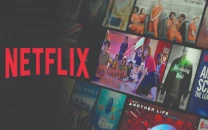
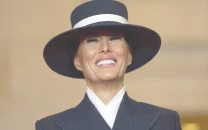
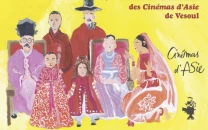
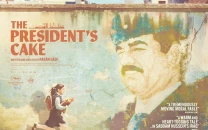
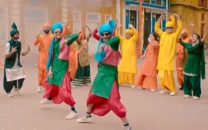












COMMENTS
Comments are moderated and generally will be posted if they are on-topic and not abusive.
For more information, please see our Comments FAQ